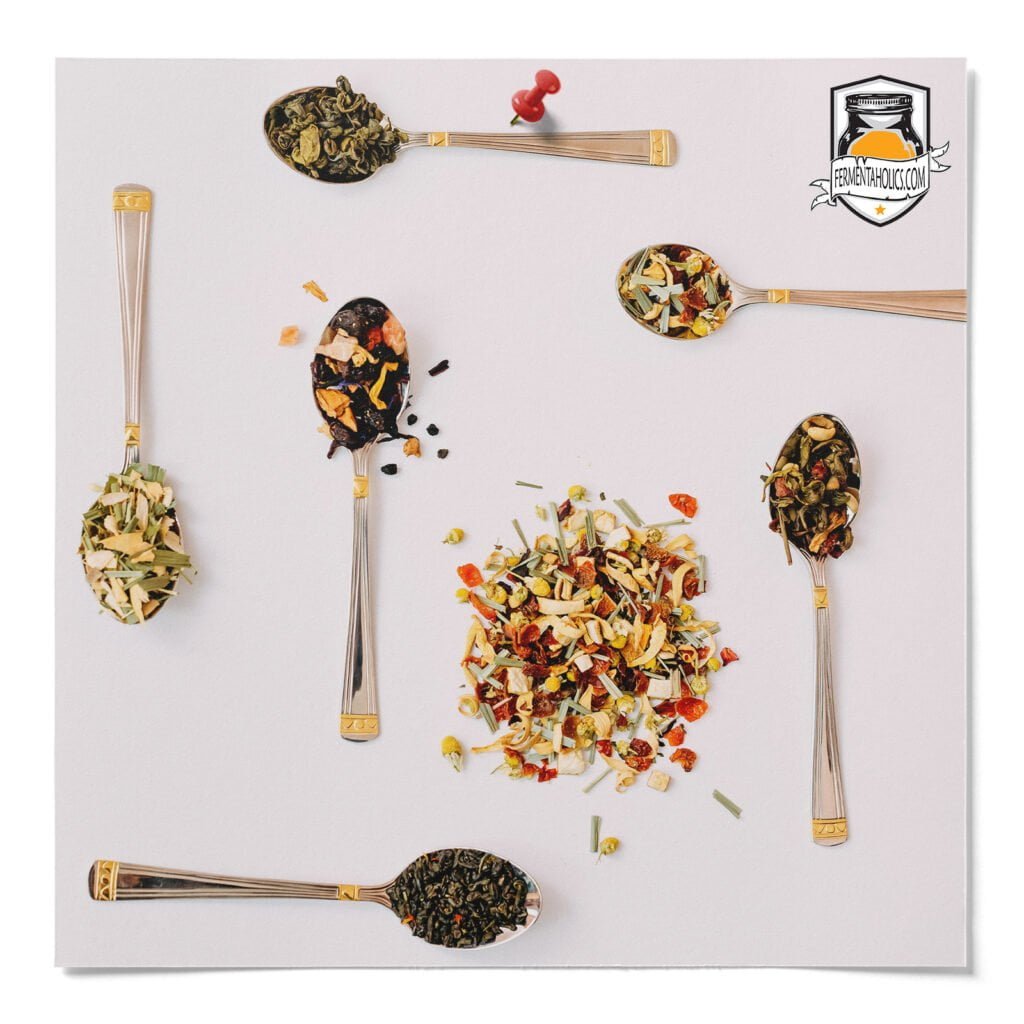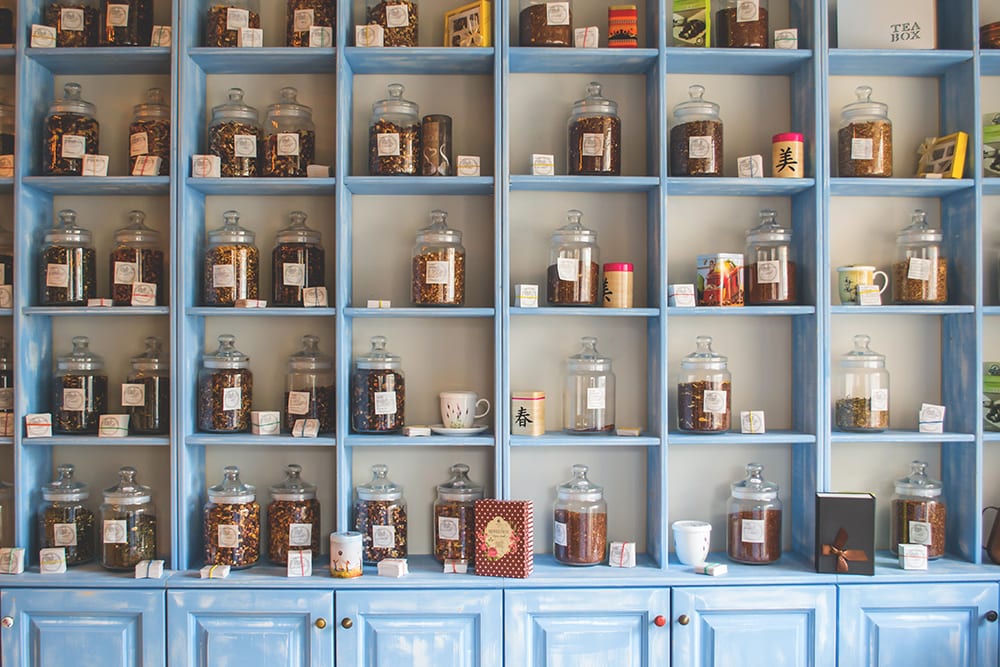
Ayurvedic and Chinese medicine has been supporting good health with the infusion of teas, berries, flowers, and leaves throughout recorded history. As modern medicine continued to advance, the power and use of herbal therapy significantly reduced over time. When you start brewing kombucha, you begin with traditional teas. After you get a few brews under your belt, brewers tend to start exploring with herbal teas. As we continue to get more creative, it seems we are rediscovering what our ancestors once used.

In the US, we call anything steeped in hot water, “Tea.” But this isn’t always correct, using the same logic, it would be like calling anything brewed in hot water coffee. There is a lot of confusion in the West on what tea exactly is. To help clear up the confusion, Lets first go over the difference between traditional tea and herbal tea, known as tisanes. Traditional teas are made from one plant, Camellia Sinensis, whereas tisanes are made from a wide variety of berries, leaves, spices, herbs, and flowers. So technically speaking, it’s not tea unless it is made from Camellia Sinensis; otherwise, it’s a tisane.

Traditional teas are made by steeping the leaves of the Camellia Sinensis plant. Yes, all traditional tea is made from just one plant. The leaves are taken from this plant, processed or dried to varying degrees, which then make up the four main categories of tea — green tea, black tea, white tea, and oolong tea.
Tisanes, are herbal teas. Tisane, a french word for “herbal infusion,” is often used by tea experts instead of herbal tea. Tisanes, or herbal teas, are usually dried fruits, flowers, or herbs which are then steeped in boiling water. Virtually any fruit, flower, or herbs that are steeped in water and drank are considered tisane. However, no actual tea leaves are used.
Want to get started with brewing kombucha with herbal teas? Check out our elements blends.

The main difference lies in their origin and components. Traditional tea comes from the Camellia sinensis plant, while herbal teas and tisanes are infusions made from plants other than Camellia sinensis, which can include herbs, flowers, spices, and other botanical elements.
While it is possible to brew Kombucha with herbal tea or tisanes, it’s important to remember that Kombucha needs the nutrients and pH balance provided by traditional tea (Camellia sinensis). Herbal teas and tisanes might not provide these essential components.
The types of traditional tea that can be used for brewing Kombucha are green tea, black tea, oolong tea, and white tea.
